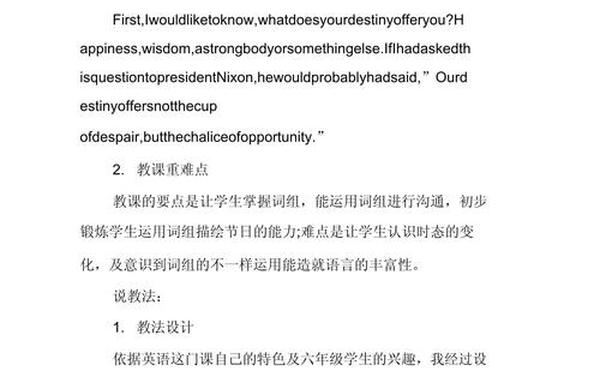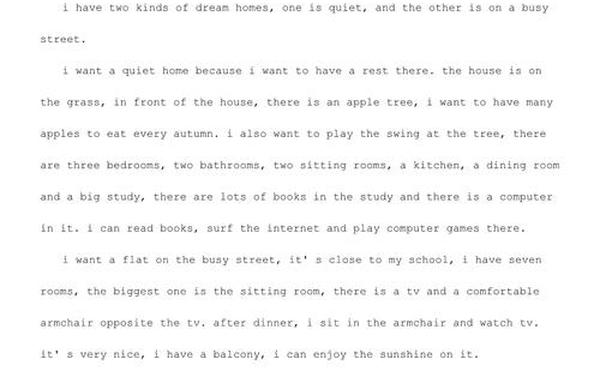Here’s a 10-minute English lesson plan template for Oxford Primary School English, structured based on the search results and adapted to meet the requirements of a formal English-speaking teaching context. This example focuses on Unit 5: The Seasons (Oxford 6B), integrating key elements from the provided sources:
Oxford Primary English Lesson Plan
Topic: Unit 5 The Seasons (Oxford 6B)
Duration: 10 minutes
1. Teaching Material Analysis
This lesson is from Oxford English 6B, Unit 5, focusing on seasonal vocabulary (spring, summer, autumn, winter) and functional sentences like "What’s the weather like in...?" and "It’s... We can...". The unit aims to enhance students’ ability to describe seasons and engage in dialogues about weather and activities. Key materials include flashcards, a weather chart, and multimedia resources to contextualize seasonal changes .
2. Student Analysis
Grade Level: Grade 6 (ages 11–12).
Background: Students have basic English skills and familiarity with simple sentence structures. They are energetic and enjoy interactive activities like games and role-plays.
Challenges: Differentiating between similar terms (e.g., windy vs. cloudy) and using complex sentences fluently .
3. Teaching Objectives
Knowledge Aims:
Master vocabulary: season, temperature, sunny, rainy, snowy.
Use sentence patterns: "What’s your favorite season?" / "In..., I can...".
Skill Aims:
Describe seasons using adjectives and activities.
Improve listening and speaking through group discussions.
Emotional Aims:
Foster teamwork and curiosity about nature.
Encourage creative expression through seasonal-themed projects .
4. Key & Difficult Points
Key Points: Vocabulary retention and sentence patterns.
Difficult Points: Using "because" to explain preferences (e.g., "I like summer because I can swim").
5. Teaching Methods
Task-Based Learning: Students complete a "Season Report" in groups.
TPR (Total Physical Response): Mimic weather actions (e.g., shivering for winter).
Situational Teaching: Use a weather chart and seasonal videos to create immersive contexts .
6. Teaching Procedures

Step 1: Warm-Up (2 minutes)
Sing a song: "The Four Seasons" to activate prior knowledge.
Play "Quick Response": Show flashcards (e.g., snowflake, sun) for vocabulary review .
Step 2: Presentation (3 minutes)
Introduce new vocabulary using a weather chart and short video clips.
Model dialogues:
T: "What’s the weather like in spring?
S: "It’s warm. We can fly kites."
Highlight grammar: "because" for reasoning .
Step 3: Practice (3 minutes)
Activity 1: Pair work – Describe a season using flashcards.
Activity 2: Role-play – Interview a classmate about their favorite season and reasons.
Step 4: Consolidation (2 minutes)
Group project: Create a "Seasonal Poster" (draw and label activities).
Share posters and vote for the most creative one .
7. Assessment & Homework
Assessment: Monitor participation in group activities and accuracy in dialogues.
Homework: Write a short paragraph: "My Favorite Season" using "because" .
8. Blackboard Design
Unit 5 The Seasons

Vocabulary: sunny, rainy, snowy, windy
Sentences:
What’s your favorite season?
In ______, it’s ______. We can ______.
Key Takeaways
This template emphasizes interactive learning (games, role-plays) and scaffolded language practice (vocabulary → sentences → creative output). It aligns with Oxford’s student-centered approach, integrating multimedia and cooperative tasks to engage young learners effectively . For more details, refer to the sources cited.



